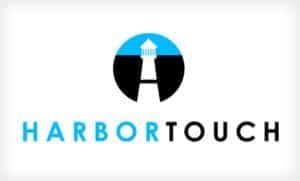Retail POS System Reviews
-
Lightspeed Retail
Read Review Visit SiteLightspeed is one of the most robust and easy-to-use solutions in today's POS market. If you're looking for a retail system that will likely have every option you could dream up in a POS in both the front and back end, and pricing isn't a major consideration, Lightspeed Retail should be fairly high on your list.
-
Clover POS
Read Review Visit SiteAt first glance, Clover seems like an ideal POS solution. It's flexible, feature-rich, and functional. However, it's not a cheap product. But if you want a simple, attractive POS solution -- and don't mind taking a risk on customer service and payment processing -- you could do a lot worse than Clover and its many different offerings.
-
Square For Retail
Read Review Visit SiteSquare for Retail runs on an iPad with an interface optimized for searching and scanning. But do the back-end features also work for businesses with large inventories? See how Square’s retail-specialized POS system stacks up in terms of features, pricing, reporting, and more.
-
Shopify POS
Read Review Visit SiteThe Shopify POS app is easy to navigate, easy to set up, and easy to integrate with your Shopify online store. It all sounds great on paper, but is it the right POS for your business? In this review, we'll help you answer that question.
-
Vend By Lightspeed
Read Review Visit SiteVend isn't quite as robust as a handful of other retail systems out there. Still, for mid-sized businesses, which may not necessarily need to utilize extremely in-depth reports and inventory analysis, it would seem to be a perfect solution. If you don't need too many add-ons, Vend's cost will likely make it an appealing option to any retailer researching POS systems.
-
Square POS
Read Review Visit SiteCan you really run your restaurant or shop on Square’s free Point of Sale app? Check out our in-depth review for a look at features, available integrations, user reviews, and more!
-
Erply POS
Read Review Visit SiteErply’s POS system caters to retailers of all sizes, with a cloud-based, device-agnostic platform and your choice of payment processors. Check out the impressive feature set and see whether Erply could be a good choice for your business!
-
eHopper POS
Read Review Visit SiteWith a (very basic) free plan, free terminal, and even free credit card processing, eHopper is worth checking out. The most appealing aspects of this software are its ease of use and low price, but that’s simply not enough to build a solid business on.
-
Epos Now
Read Review Visit SiteEpos Now is a budget-friendly, user-friendly point of sale solution, but it has some shortcomings — such as requiring an additional paid plan for technical support and inconsistent customer service. See if the system might be a good fit for you!
-
Harbortouch POS
Read Review Visit SiteHarbortouch has a decent interface and a feature-set that certainly checks the majority of boxes you would expect from a solid POS offering. If you can find a way to make sure that you’re getting the processing rate you’re promised and can negotiate out of some of the hidden fees, you might end up with a strong and affordable system.












